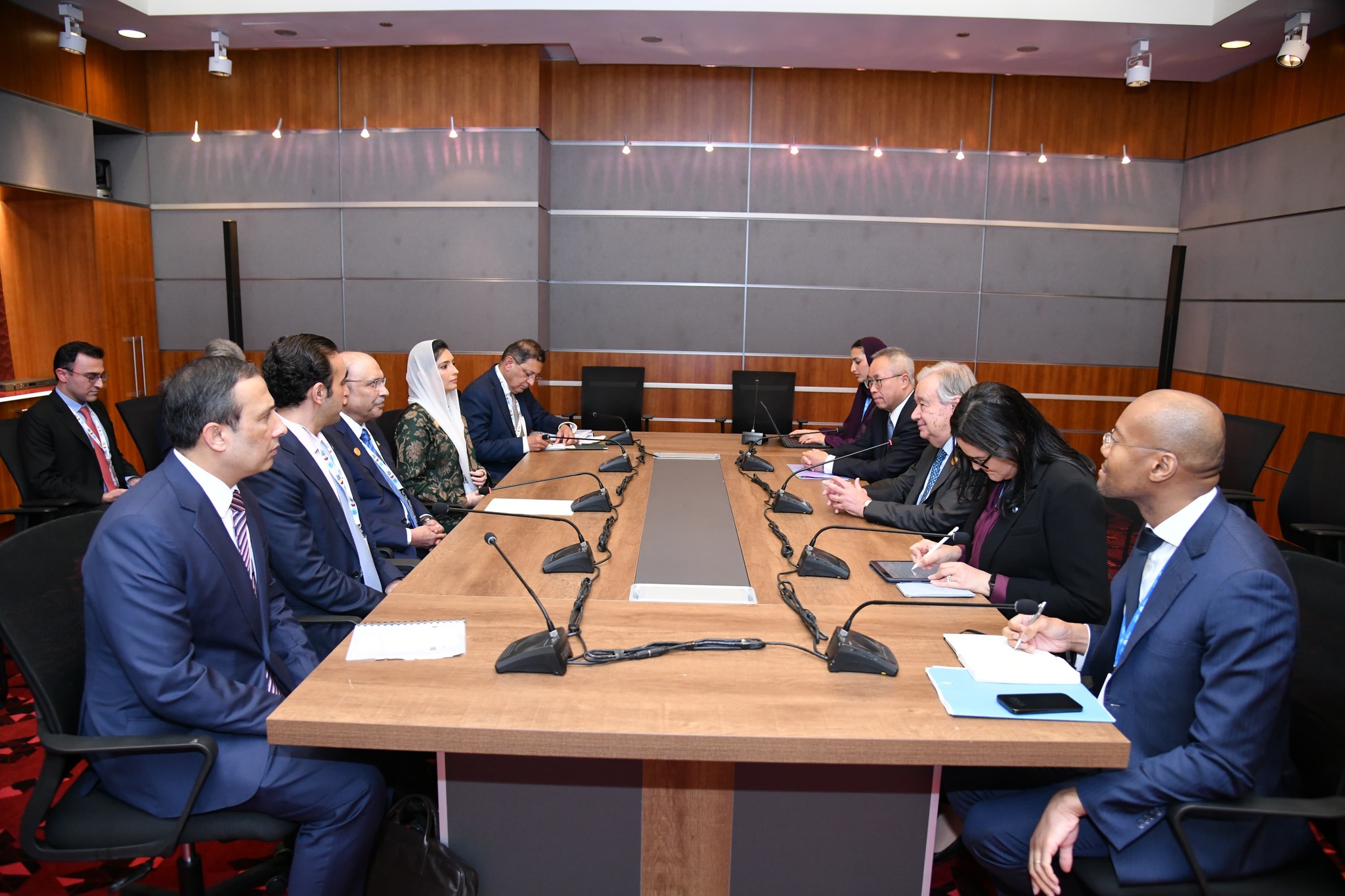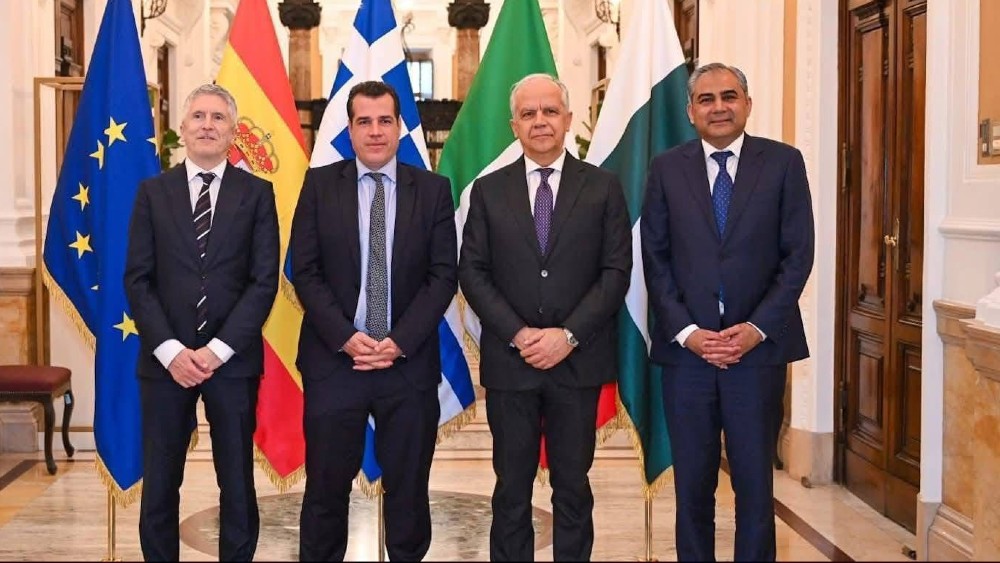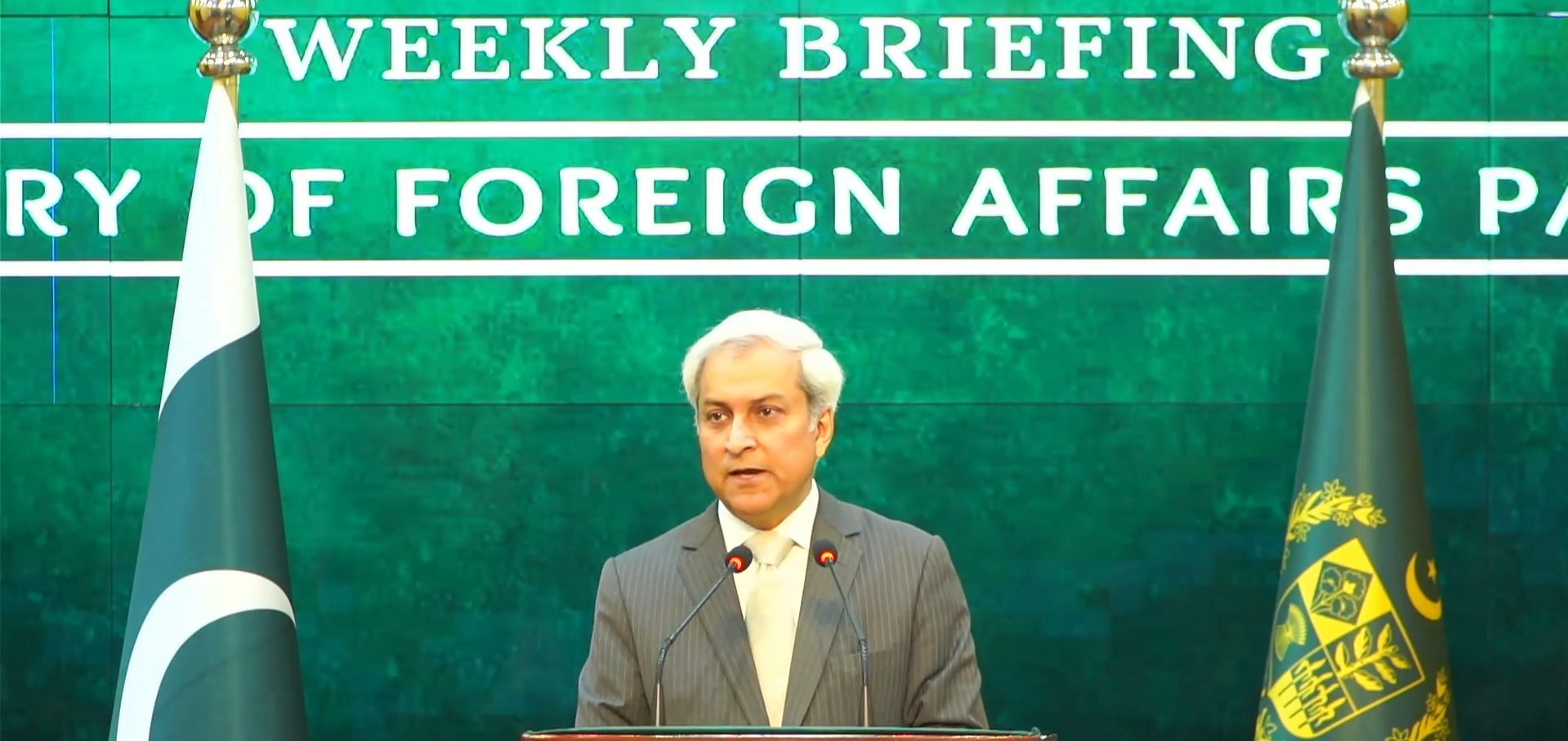ISLAMABAD: President Asif Ali Zardari on Tuesday strongly condemned India’s “weaponization of water,” saying the practice threatens regional stability and the basic rights of millions of people in South Asia.
The president met United Nations Secretary-General António Guterres on the sidelines of the Second World Summit for Social Development in Doha.
“We face a new threat in the form of water weaponization,” President Zardari said in the official statement. “Water, which the world recognizes as a fundamental human right, cannot be turned into a tool of pressure. Such tactics cannot and will not succeed.”
The president’s remarks come amid Pakistan’s continued concerns regarding India’s suspension of key cooperative mechanisms under the Indus Waters Treaty.
Signed in 1960 through World Bank facilitation, the agreement allocates the western rivers to Pakistan and the eastern rivers to India. Tensions have risen in recent years as India expanded hydropower projects on the western tributaries, prompting warnings from Pakistan over reduced downstream flows.
The situation escalated in April 2025 when India placed the treaty in abeyance following an incident in Indian-occupied Kashmir. A move unprecedented since the treaty’s signing. Pakistan has maintained that any attempt to restrict its lawful water share would constitute a grave and unacceptable act.
Pakistan People’s Party Chairman Bilawal Bhutto-Zardari, who was also present in Doha meeting, said that India’s recent actions had already resulted in “severe humanitarian and environmental consequences” inside Pakistan.
“India’s withdrawal from treaty obligations and withholding of river data has contributed directly to floods and disasters in Pakistan,” he said. “It is deeply concerning and demands urgent global attention.”
During the meeting, President Zardari praised the Secretary-General’s leadership and his “consistent support for Pakistan” in navigating global challenges.
He reiterated Pakistan’s call for a peaceful resolution of the Jammu and Kashmir dispute in line with UN Security Council resolutions and highlighted Pakistan’s longstanding role in United Nations peacekeeping missions.
Secretary-General Guterres acknowledged Pakistan’s contributions to global peace and expressed solidarity with Pakistan in its efforts against terrorism.
President Zardari also welcomed the Doha Political Declaration as a step toward renewing international commitment to poverty reduction and social development.
He noted that the Benazir Income Support Programme (BISP) remains a successful model for advancing social inclusion and women’s economic empowerment.
Reaffirming Pakistan’s foreign policy priorities, the president called for the establishment of an independent and sovereign Palestinian state based on pre-1967 borders and the realization of the Palestinian people's right to self-determination.
“Pakistan fully supports the United Nations’ central role in promoting peace, justice, and prosperity,” he said.
First Lady Aseefa Bhutto-Zardari, PPP Chairman Bilawal Bhutto-Zardari, and Pakistan’s Ambassador to Qatar were present during the meeting.






.jpg)